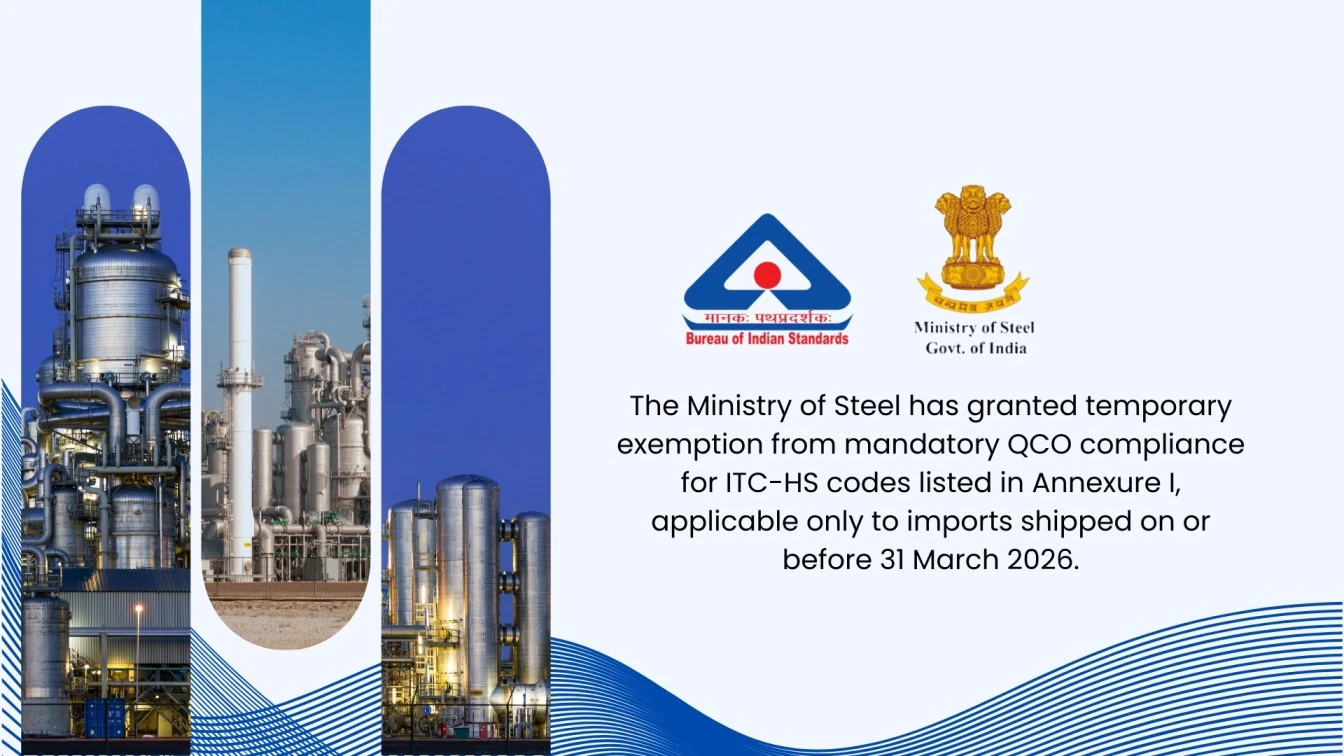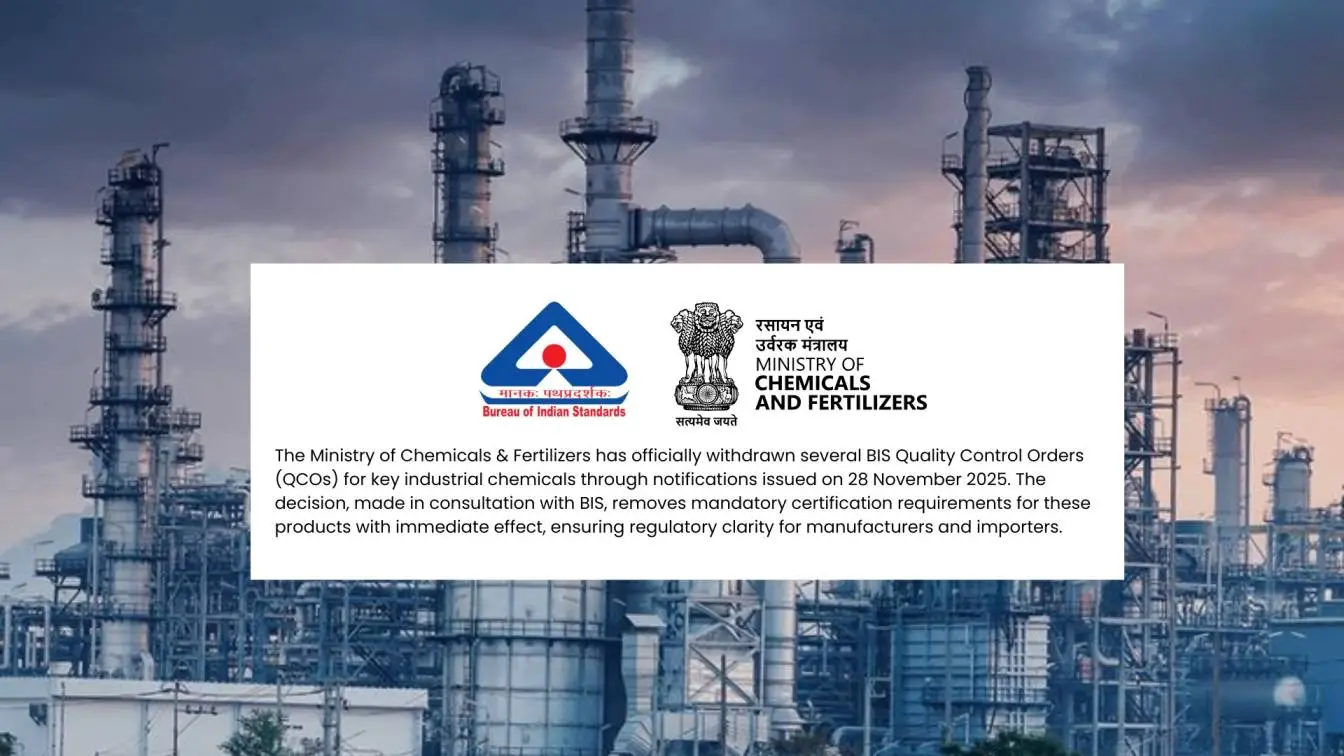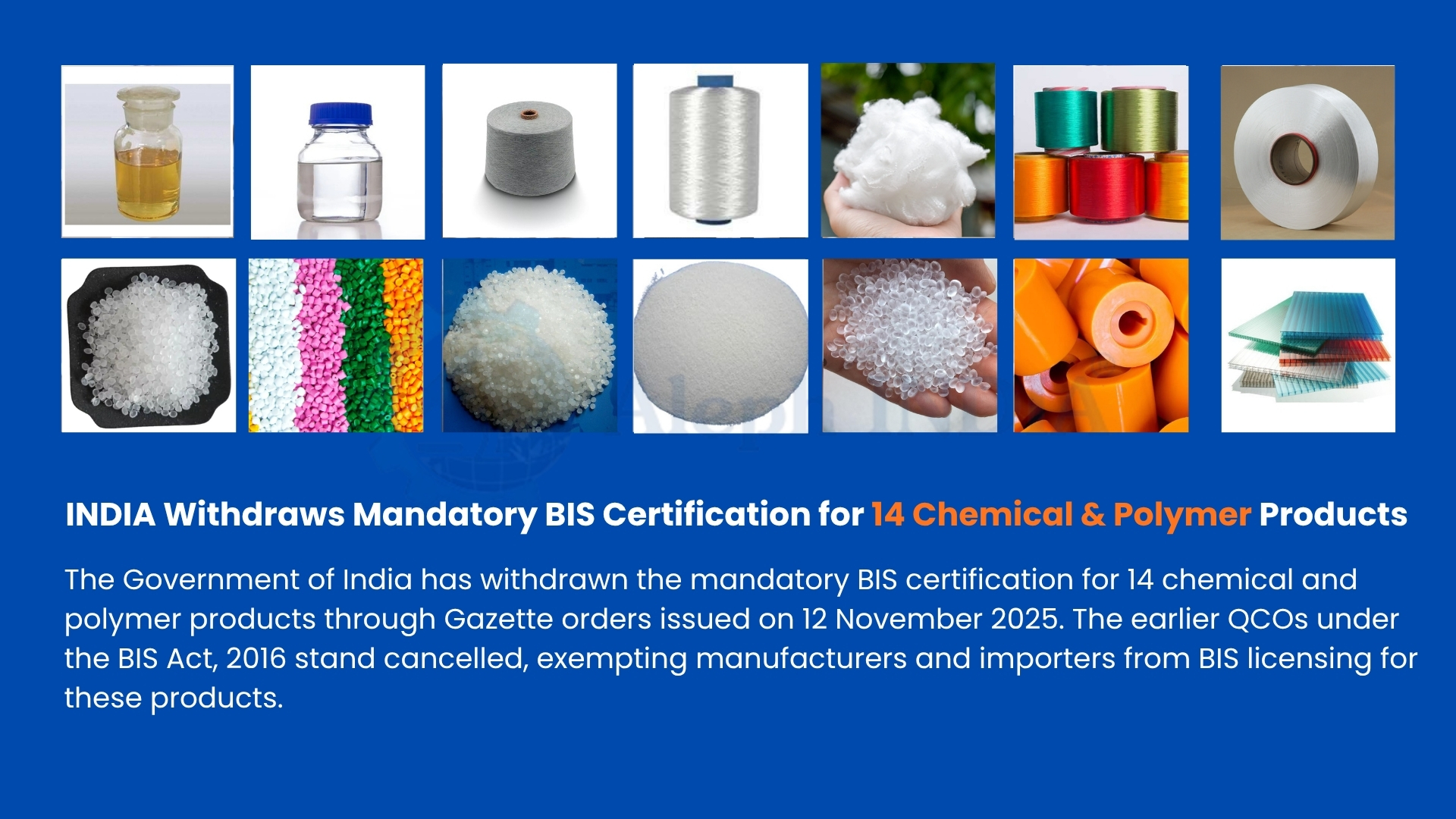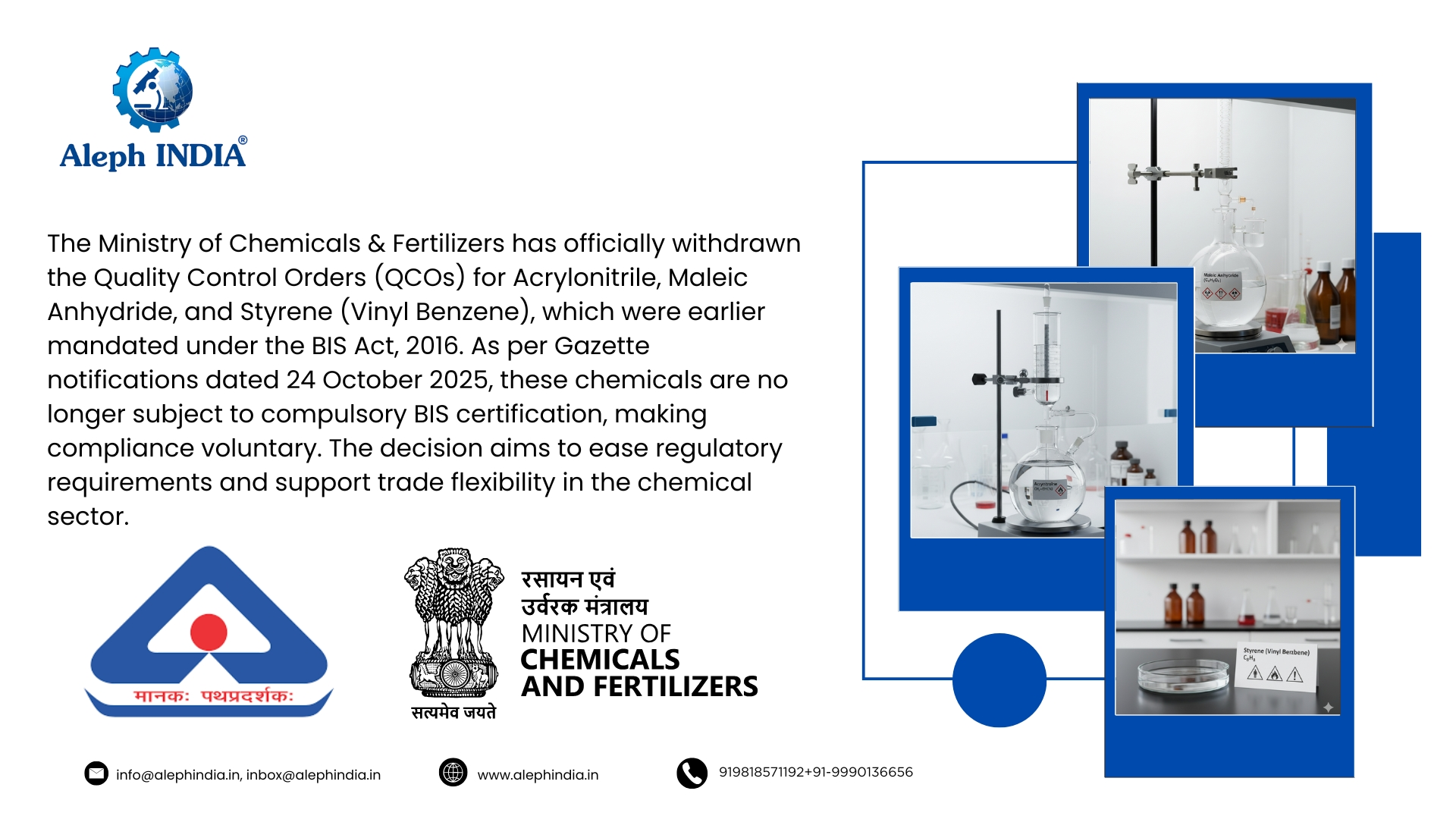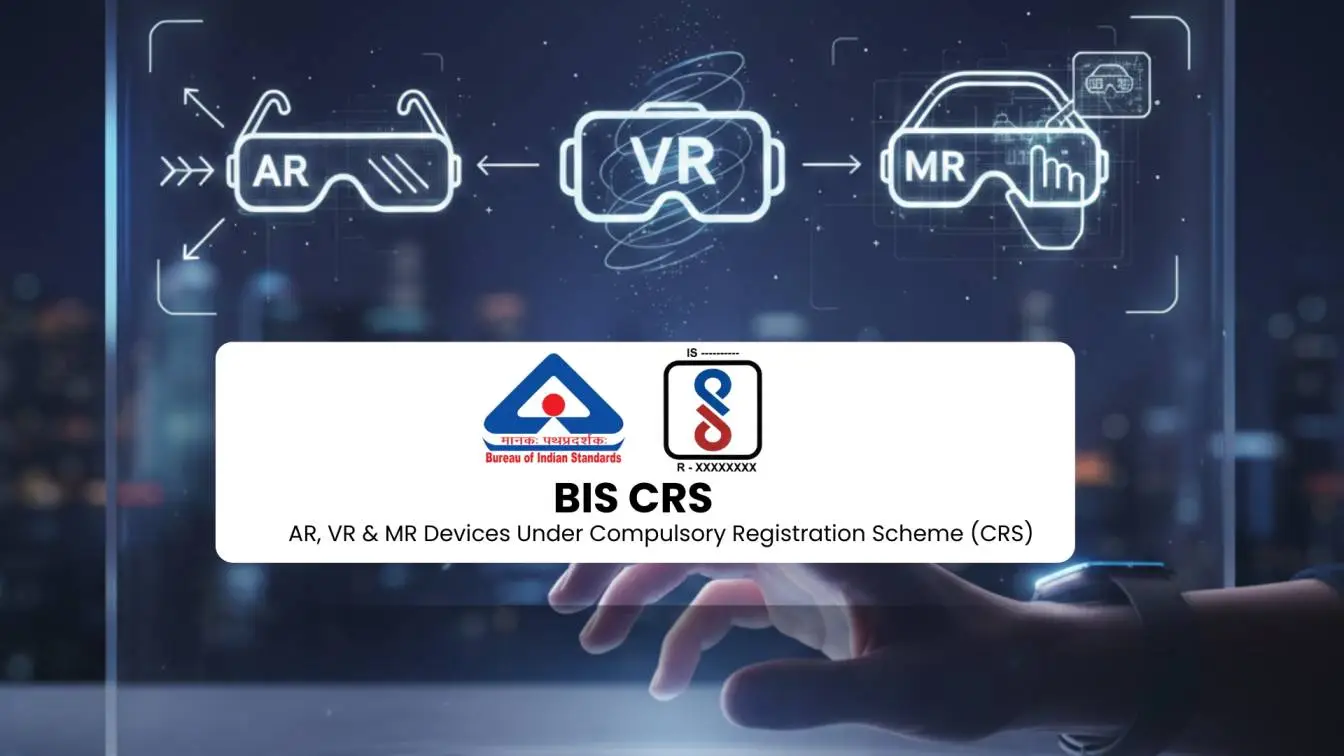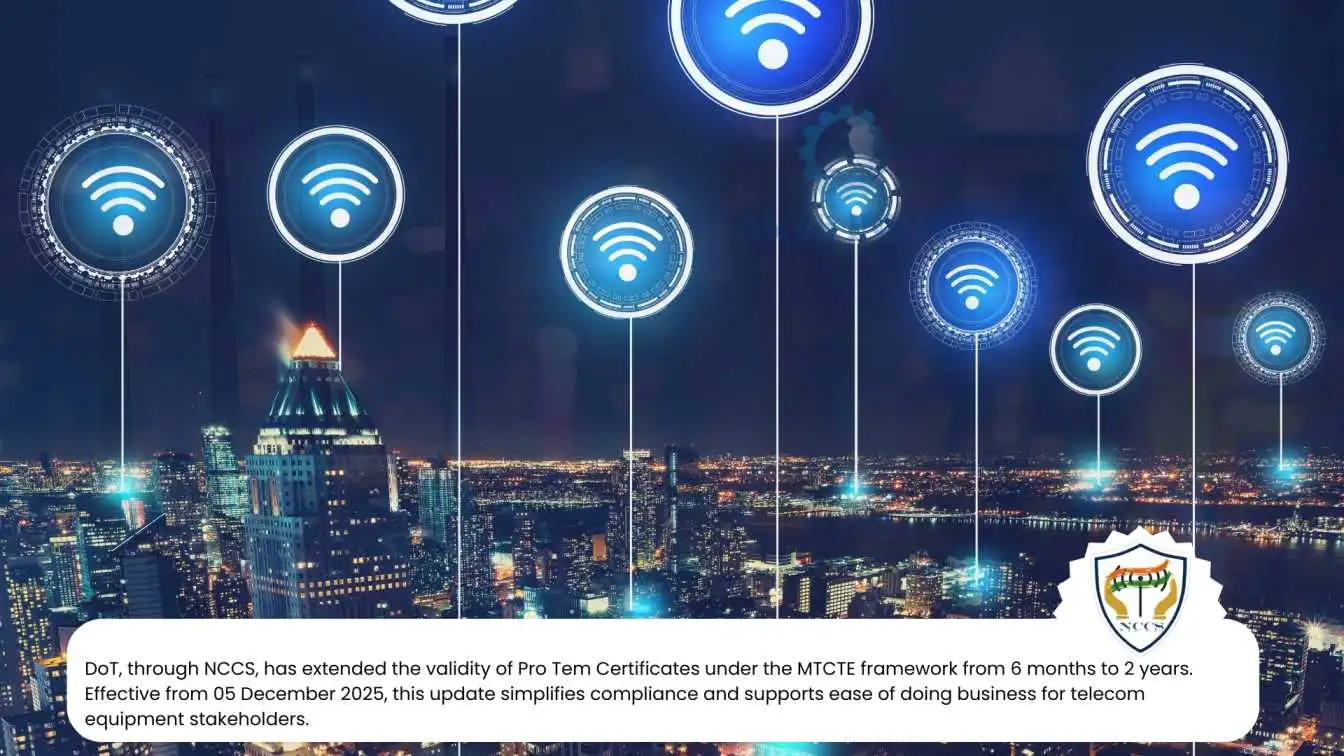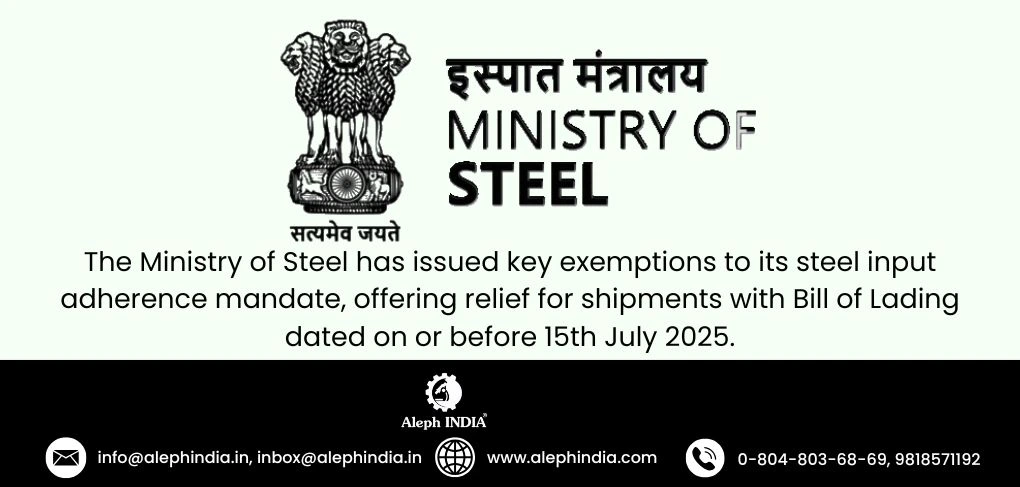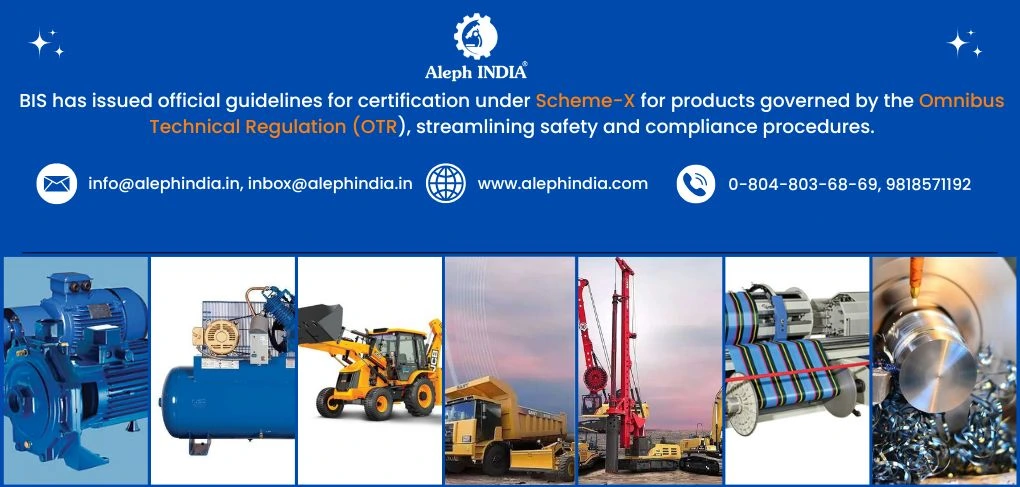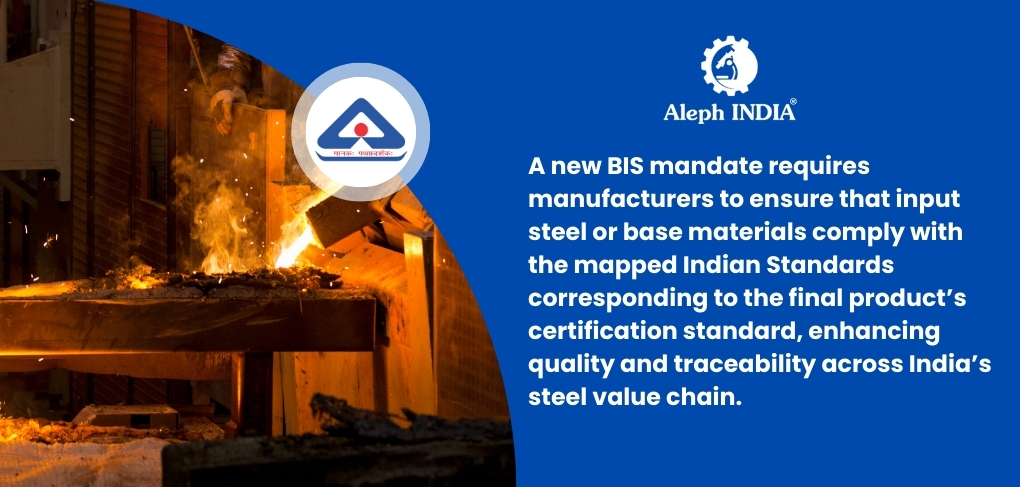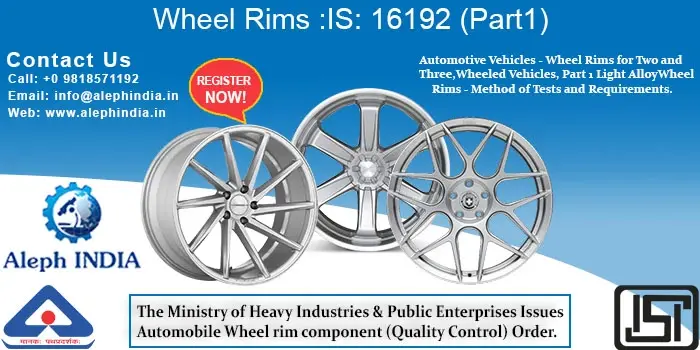
BIS CERTIFICATION: UNDERSTANDING AUTOMOBILE WHEEL RIM COMPONENT (QUALITY CONTROL) ORDER
“High quality” and “top quality” are some of the terminologies
used so often by manufacturers to represent their products that
they’ve all but most of the time lost their impact on skeptical
sales. Certification, on the other hand, is another matter-particularly certification that is recognized and respected all over India. These certifications provide third-party validation of quality using the most stringent standards and continual reevaluation.
Bureau of Indian Standard BIS Certification is India’s most respected manufacturing certification authority and now the regulatory, enforcing and certifying
authority for Automobile Wheel Rim Component (Quality Control) Order, 2020. The entitled order “Automobile Wheel Rim Component (Quality Control)” was presented by The Ministry of Heavy Industries & Public Enterprises on 21 September 2020, where the department has drawn up appropriate quality standards for importers as well as the local industry.
BELOW ARE THE TABLE SHOWING THE AUTOMOBILE WHEEL RIM CATEGORIES ON WHICH THE ISSUED ORDER IS GOING TO BE APPLIED
| Automobile wheel rim Categories |
Indian Standard no. |
Proposed
Products |
| Wheel Rim- Category 2W, 3W,e- rickshaw and e-cart |
IS: 16192 (Part 1) |
Automotive Vehicles – Wheel Rims for Two and Three Wheeled Vehicles Part 1 Light Alloy Wheel Rims Method of Tests and Requirements |
| Wheel Rim- Category 2W, 3W,e- rickshaw and e-cart |
IS: 16192 (Part 2) |
Automotive Vehicles – Wheel Rims for Two and Three Wheeled Vehicles Part 2 Sheet Metal Wheel Rims Method of Tests and& Requirements |
| Wheel Rim- Category 2W, 3W,e- rickshaw and e-cart |
IS: 16192 (Part 3) |
Automotive Vehicles Rims for Two and Three Wheeled Vehicles Part 3 spoke Wheel Rims – Method of Test and Requirements |
This is to be notified that all-wheel rims, either domestic or any imports in India, must be certified under BIS Certification for Wheel Rim standards. And it has been clearly mentioned in the notice that any manufacturer that contravenes the provision of this order will be liable to punishment under the provision of the Bureau of Indian Standards Act, 2016.
Key Amendments in the Quality Control Order
In a significant move aimed at enhancing the quality and safety of automobile wheel rims, the Central Government has introduced the Automobile Wheel Rim Component (Quality Control) Amendment Order-II, 2023. This order, set to come into force on 22nd December 2023 or upon its publication in the Official Gazette, marks a pivotal step in regulating the manufacturing and import of these critical automotive components.
The amendment brings notable changes to the existing Automobile Wheel Rim Component (Quality Control) Order issued on 21st September 2020. The revised order specifies that its provisions apply to goods or articles mentioned in the table, with certain exemptions to promote trade and industry growth.
The Key exemptions include:
-
Automobile Wheel Rims for Export: - The order excludes automobile wheel rims meant for export from its purview, acknowledging the significance of international trade.
-
Relaxation for Limited Vehicle Rims: - Up to five wheel rims per vehicle, as per the provisions of rule 126A of the Central Motor Vehicles Rules, 1989, are exempt from testing. This relaxation applies if the number of vehicles sold in India for a specific model and its variants is less than 250 in any consecutive six-month period within a year.
-
Imports for Repairs and After Sales Service:The order allows the import of up to 5,000 units of 4-Wheeler Automotive Wheel Rims (for 1,250 vehicles) per financial year by a 4-Wheeler vehicle manufacturer, specifically for repairs or after-sales service purposes.
-
Research and Development Imports: Import of up to 10,000 units of 4-Wheeler Automotive Wheel Rims (for 2,500 vehicles) per financial year, per 4-Wheeler vehicle manufacturer, is permitted for Research & Development (R&D) purposes.
-
Boosting Domestic Manufacturing: To encourage domestic manufacturing, the order allows import of up to 50,000 units of 4-Wheeler Automotive Wheel Rims (for 10,000 vehicles) per financial year, per 4-Wheeler vehicle manufacturer, specifically for manufacturing 4-Wheeler vehicles in India.
-
Support for Two-Wheeler Industry:For the two-wheeler industry, the order permits imports of up to 24,000 units of 2-Wheeler Automotive Wheel Rims (for 12,000 vehicles) per financial year for repairs or after-sales service purposes.
-
R&D Exemptions for Two-Wheelers: - Import of up to 10,000 units of 2-Wheeler Automotive Wheel Rims (for 5,000 vehicles) per financial year by a two-wheeler vehicle manufacturer is allowed for Research & Development (R&D) purposes
-
Promoting Domestic Production of Two-Wheelers:In a bid to support the manufacturing of 2-Wheeler vehicles in India, the order permits import of up to 70,000 units of 2-Wheeler Automotive Wheel Rims (for 35,000 vehicles) per financial year, per 2-wheeler vehicle manufacturer. However, this is subject to not importing more than 25,000 Automobile Wheel Rim units of one type.
Also Read:
Automobile Wheel Rim Component (Quality Control) Amendment Order-II, 2023
The new proposed regulation is to ensure greater road safety. In line with this, the government is in the process of revising the technical specifications of another 350 products to increase safety and quality, imposing higher standards on imports, and promote local wheel rim manufacturers. The draft for quality control of rims includes products for two-wheelers, three-wheelers, electrically powered vehicles, passenger cars, and commercial vehicles. The Bureau of Indian Standards (BIS) is responsible for the certification and implementation of the new quality standards.
The mandatory BIS Certification for Wheel Rims comes under the category of ISI Certification. This certification is a mandatory type-5 certification and requires factory audit and sampling testing. Mainly for industrial and consumer goods, such as household appliances, steel material, car tires and rims, etc.
Benefits of BIS Certification For Wheel Rim Components for Manufacturers and Importers
- This certification will meet national, regional, or industry compliance requirements depending on the scheme
- Demonstrates your products comply with product Standards
- Demonstrates you have a recognized quality management system governing your processes
- Demonstrates your commitment to 3rd party review of your products
- Ongoing surveillance of products helps you spot unauthorized component swaps from suppliers
- Consumers, end-users, retailers, importers, and distributors recognize the value of third party certification and this provides them with product confidence.
- As the assessment process is robust certification can be used as evidence of meeting your duty of care to supply safe goods if you are challenged with product liability accusations.
Proposed Guidelines of Inspection and Testing
- Laboratory
- A laboratory shall be maintained which shall be suitably equipped (as per the requirement given by the authority and staffed, where different tests given in the specification shall be carried out in accordance with the methods given in the specification.
- The manufacturer shall prepare a calibration plan for the test equipment.
- Test Records
The manufacturer shall maintain test records for the tests carried out to establish conformity.
- Levels of Control
- The tests like Rotational Bending Fatigue Test, Radical Load Durability Test, Radical Impact Resistance Test, Torsion Moment Test, and Air Leak Test shall be carried out on the whole production of the factory which is covered by this plan and appropriate records should be maintained.
- All the production which conforms to the Indian Standards and is covered by the license should be marked with Standard Mark.
- Rejections
- Disposal of the non-conforming product shall be done in such a way so as to ensure that there is no violation of provisions of BIS Act, 2016. Below is the Table showing the goods and articles on which the drafted order is going to be applied.
Conclusion:
These amendments not only streamline regulatory processes but also aim to foster innovation, competitiveness, and growth in the automotive industry. The government's commitment to creating an environment conducive to both domestic manufacturing and international trade is evident in the thoughtful provisions of the amended order. As the automotive sector evolves, these regulatory measures play a crucial role in ensuring the quality, safety, and efficiency of automobile wheel rims in the Indian market.
Aleph INDIA stands as a leading BIS consultant in India, dedicated to assisting manufacturers and importers in obtaining BIS licenses for their products. With a commitment to excellence, Aleph INDIA ensures that your products not only meet but exceed the required quality benchmarks. Aleph INDIA has been serving the industry as a single-window operator for all product regulatory compliance. We can assist importers or manufacturers in meeting all criteria for importing or selling a product in the Indian market.



